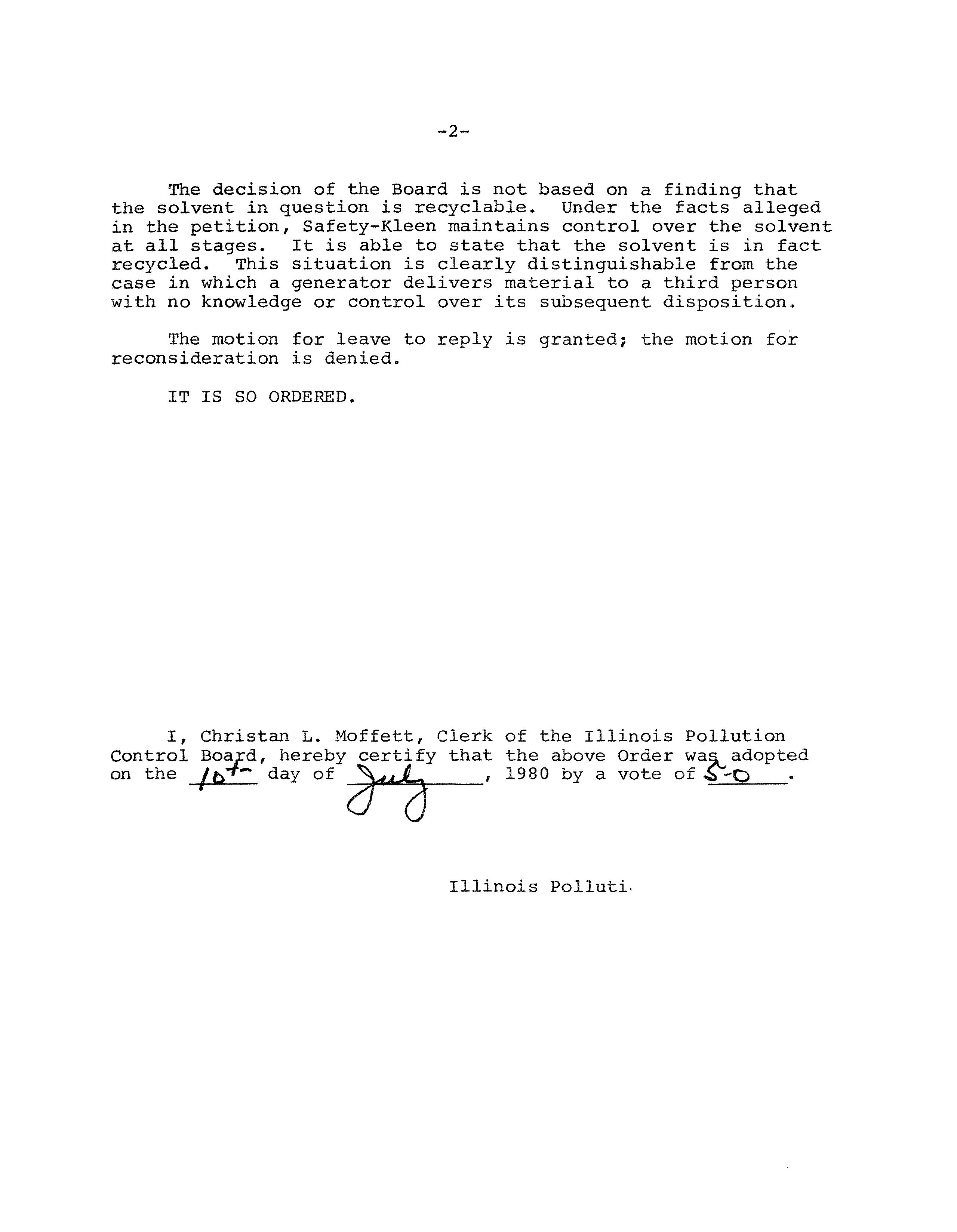ILLINOIS POLLUTION CONTROL BOARD
July 10,
1980
SAFETY-KLEEN CORPORATION,
Petitioner,
v.
)
PCB 80—12
ENVIRONMENTAL PROTECTION AGENCY,
)
Respondent.
ORDER OF THE BOARD
(by
D.
Satchel?):
On March 10,
1980 the Environmental Protection Agency
(Agency)
filed, pursuant to Procedural Rule 333,
a motion seeking recon-
sideration of the Board’s Order of February
7, 1980 in which the
Board dismissed as inadequate the petition of Safety-Kleen Corp-
oration
(Safety-Kleen) which requested a variance from the mani-
fest requirements of Chapter
9:
Special Waste Hauling Regula-
tions.
On May 16 Safety—Kleen filed a response and on
May
22,
1980 the Agency filed a motion for leave to reply.
On June
9
the Agency filed a memorandum of law and facts in further support
of its motion for reconsideration.
On June 27,
1980 Safety-Kleen
filed a reply.
The Agency contends that the Board violated the provisions
of Section 37 of the Environmental Protection Act by acting before
the Agency filed a recommendation.
However, the Board’s Order of
February
7, 1980 was not an adjudication on the merits of Safety-
Kleen’s claims.
It was rather a dismissal based on the inadequacy
of the petition.
The Board often dismisses inadequate variance
petitions without awaiting a recommendation from the Agency.
The Agency points to the specific inclusion of “equipment
cleanings”
in the definition of “industrial process waste.”
How-
ever, prior to determining whether a material falls into one of
the categories of special waste,
it is necessary to determine
whether it is “waste.”
Under the facts
alleged in the petition,
the spent solvent is not waste.
The issue of whether, if it were
waste,
it would be industrial process waste
is moot.
Although the transportation of flammable solvent may pose
a
threat to the public, this is not the problem which Chapter
9
addresses.
Hazards to the public associated with the transporta-
tion of hazardous materials are within the jurisdiction of the
Department of Transportation.
The Board intends to regulate this
transportation only after the materials become waste.
—2—
The decision of the Board is not based on a finding that
the solvent in question is recyclable.
Under the facts alleged
in the petition, Safety—Kleen maintains control over the solvent
at all stages.
It is able to state that the solvent is
in fact
recycled.
This situation is clearly distinguishable from the
case
in which a generator delivers material to
a third person
with no knowledge or control over its subsequent disposition.
The motion for leave to reply
is granted;
the motion for
reconsideration
is denied.
IT IS SO ORDERED.
I,
Christan
L. Moffett,
Clerk of the
Illinois
Pollution
Control
Boa4rd,
hereby
certify
that
the
above
Order
wa
adopted
on
the
/~
day
of
__________,
1980
by
a
vote
of
-O
Illinois Polluti



